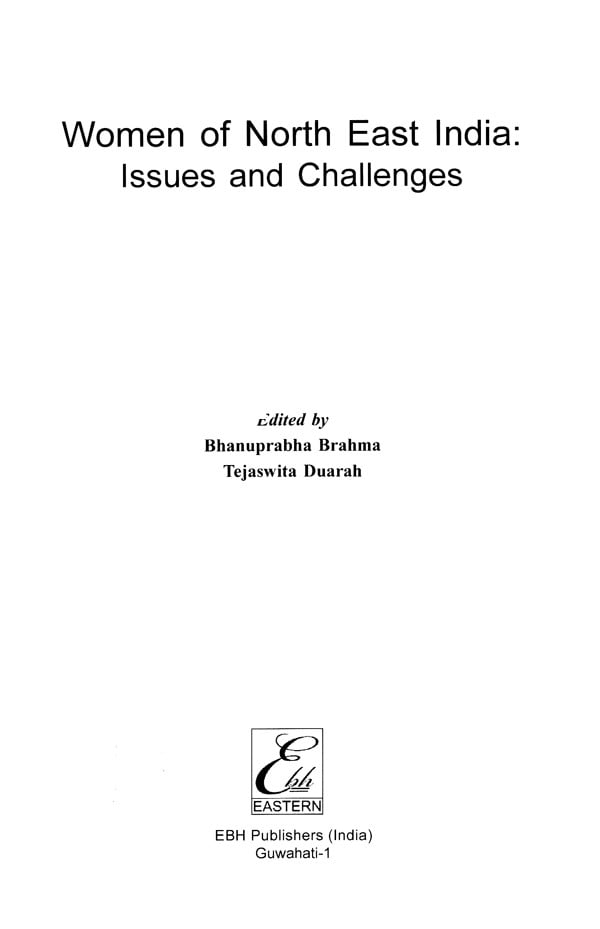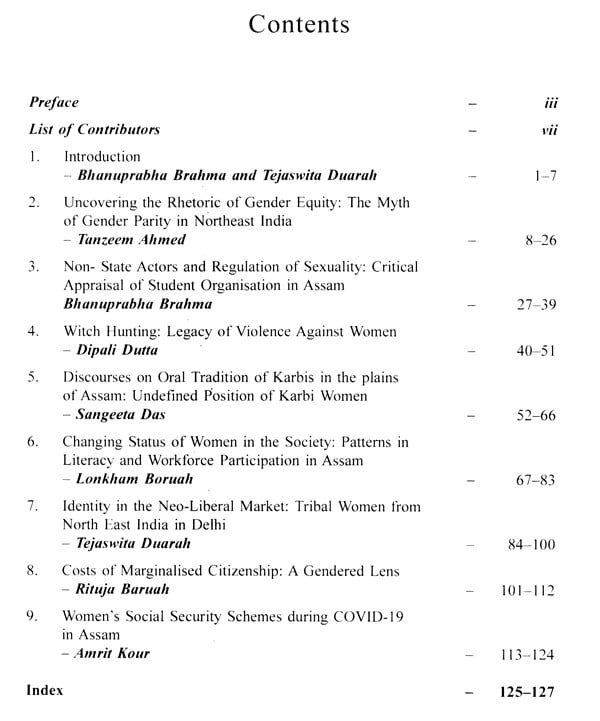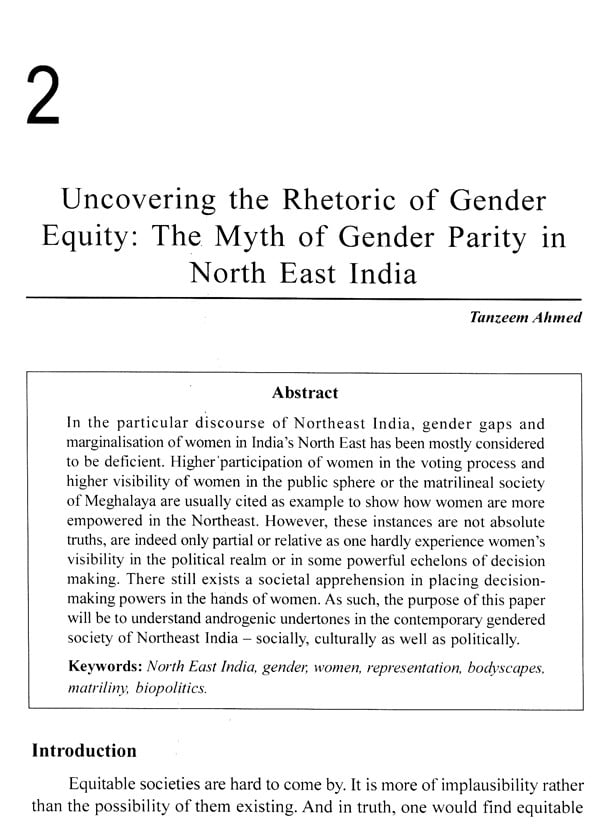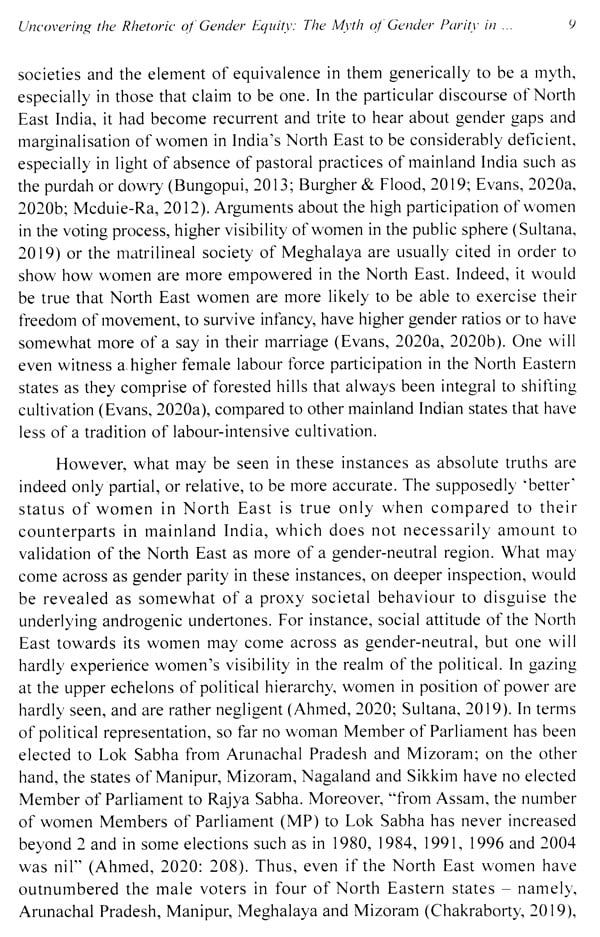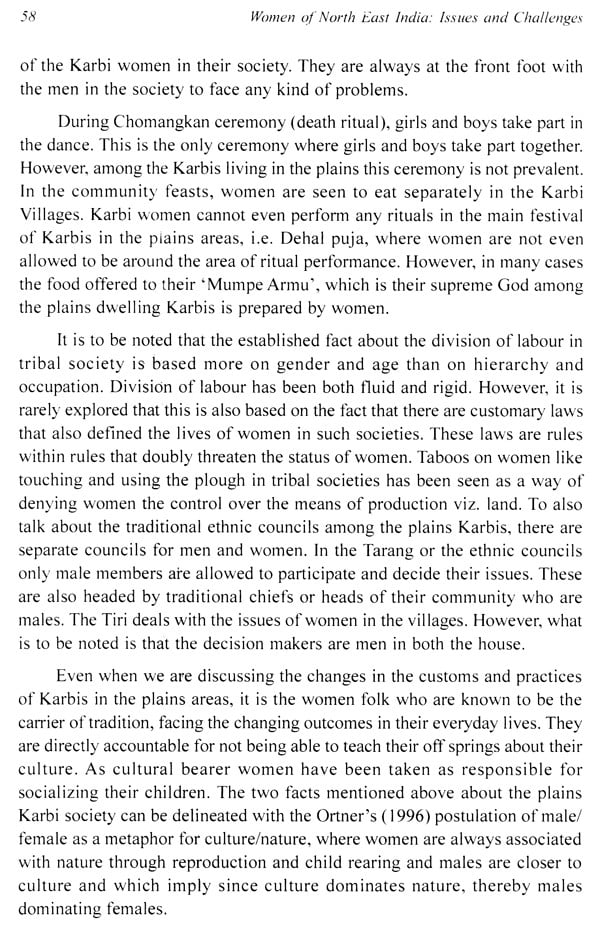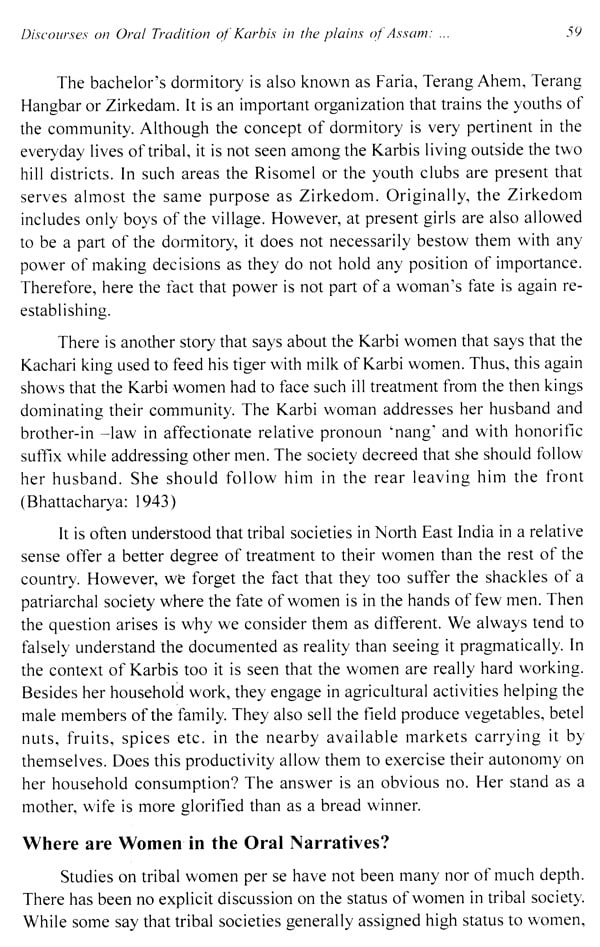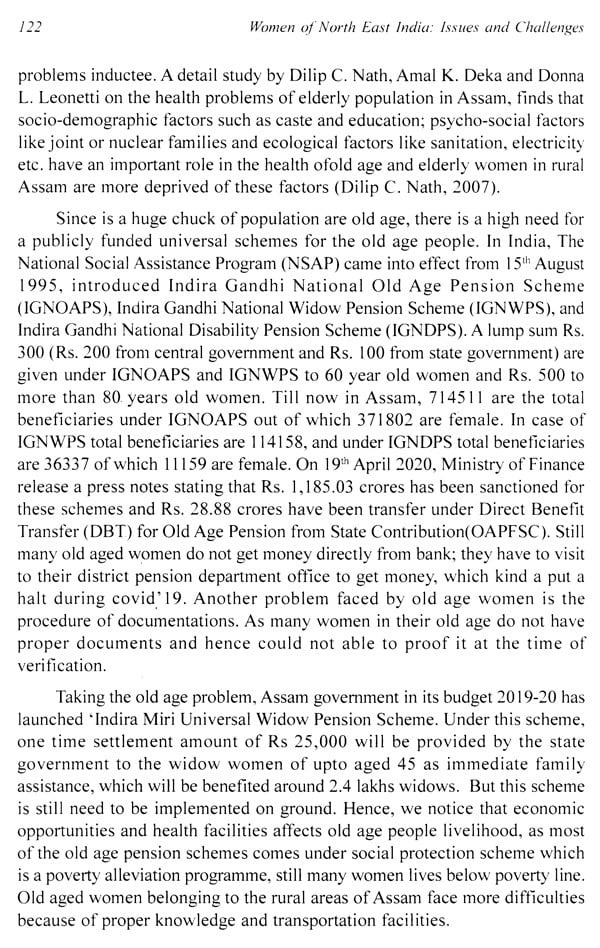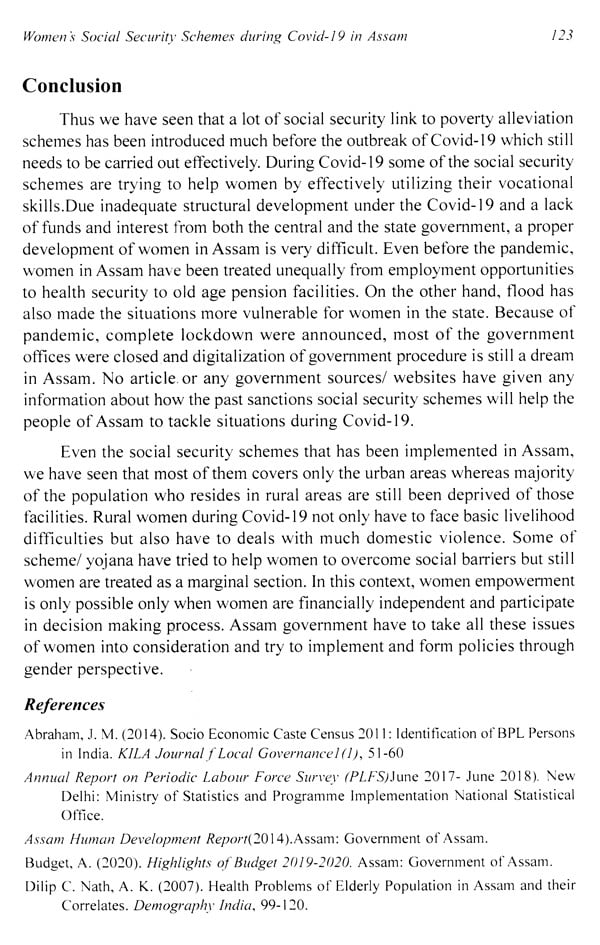About the Book Women In North-East India have often been marginalized in the development process. Besides power relations, other spheres of subordination have impacted resource distribution and security over resources like land, economy and space. Although, women In the region appear to enjoy a comparatively better status than other parts of the country, they too face a complex system of traditional and contemporary practices of life which discriminate them in the society. Living within a web of inter-sectionality within their household, society and beyond, they struggle to find their identity in the socio-economic, cultural, political and environmental spheres of life. The book "Women of North East India: Issues and Challenges" provides an Insight into such traditional and contemporary issues and challenges that women has been facing in the region along with their gradual process to overcome the same. It tries to present the structure and character of gender disparity and women's status in different aspect of life in North East India.
About the Authors Bhanuprabha Brahma had completed her PhD in the year 2021, from the Centre for the Study of Law and Governance, Jawaharalal Nehru University, New Delhi. She had graduated in 2012 from Satyawati College (M), University of Delhi with honours in Political Science. She did her Masters In Political Science from the Centre for the Political Studies, Jawaharalal Nehru University, New Delhi in the year 2014. She has also completed her Master of Philosophy (M.Phil) from the Centre for the Study of Law and Governance, Jawaharalal Nehru University, New Delhi in the year 2016. She has also taught as a guest lecturer in Satyawati College, Delhi University in the year 2017.She has further participated in various national and International conferences, workshops as well. Her research Interest Includes social movements, ethnicity, Inter-sectionality and gender.
Tejaswita Duarah is a Doctoral Research Scholar in Geography at the Centre for the Study of Regional Development, School of Social Sciences, Jawaharlal Nehru University. Her research Interests lies in the areas of gender, women and tribal societies in North East India. She had graduated from Kamala Nehru College, University of Delhi with Honours in Geography. She completed both Masters in Arts and Masters in Philosophy in Geography with specialization in social geography from the Centre for the Study of Social Sciences, Jawaharlal Nehru University. She has also pursued courses in Geo-informatics from both Indira Gandhi National Open University and Indian Institute of Remote Sensing. She has actively participated in workshops on research methodology on gender issues in labour and on subalternity in social sciences and humanities. She has also published a wide range of research papers in journals and as book chapters.
Preface This book is the outcome of our research work on women in North-East India. As a researcher we had our particular areas, limited within the chosen topic. While on the field, as a researcher we would get the opportunity to learn about the conditions and status of women in North-east India through diverse manner. Hence, this book is the result of those stories which we could not incorporate in our thesis. Women constitute roughly one half of the population of our country. While, they were denied their basic human rights that made them marginalized to such an extent that most of them do not expect equality with men. The book 'Women of North EastIndia: Issues and Challenges is modelled keeping in mind that the northeast is generally considered better off than that of the nation as a whole in terms of gender equality. However gender inequality still exists in the region in spite of the predominance of the fact various ethnic groups do not believe in sex discrimination. The study reveals that women are relatively disempowered and enjoy somewhat lower status than that of men in the region. Gender gap exists in terms of access to education, employment, health and public space too.
This book that is based on North East India, attempts to throw a partial light on the diverse issues that impact gender relation and women's status in the region. Along with the conditions, struggles and position of women in North East India it also projects the vast potential of ideas for future researchers to explore academically. The book brings out a clear perception on the existing gender disparity in North East India and the impact it has on the status of women. The chapters of this book display a wide spectrum of issues that impact upon the gender relations and women's status in the region.
The book is systematically arranged into eight chapters that highlight diverse issues like gender inequalityto moral policing and witch-hunting. It also goes through a chronological order covering the undefined position of Karbi women also focussing on aspects like education, identity of women in neoliberal market. The book further highlights the recent issues like the marginalised citizenship through a gender lens and women's social security schemes during the COVID-19 pandemic.
Introduction The North Eastern Region of India is a cradle of civilization with a rich ecological and socio-cultural diversity. Driven by a complex structure of historically diverse communities and continuous migration of people from different parts of the world, societies in the region have absorbed and adapted to different socio-cultural changes in time. As societies bare the tides of time, their structural patterns of existence have too been altered along the way.
Historically, this region has been one of the most neglected parts of the country both politically and socially. The physiographic structure of the area is best described as a valley ie. the Brahmaputra valley surrounded by the elevated topography of Purvanchal hills, Karbi and the Meghalaya plateau that makes the terrains less accessible to both human habitation and developmental activities. The region had faced isolation until the advent of the British missionaries which first introduced formal education along with other developmental activities like up of railway lines and establishing plantations in the region. The region also gained an eye for research scholars who explored the region immensely. The academic pursuance and developmental activities continued into the post independence up till contemporary times.
**Contents and Sample Pages**
